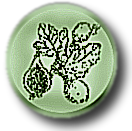Subsystem: Pterin carbinolamine dehydratase
This subsystem's description is:
Pterin-4a-carbinolamine dehydratases (PCDs) recycle oxidized pterin cofactors generated by aromatic amino acid hydroxylases (AAHs). PCDs are known biochemically only from animals and one bacterium, but PCD-like proteins (COG2154 in the Clusters of Orthologous Groups [COGs] database) are encoded by many plant and microbial genomes. However, many of these genomes encode no AAH homologs, making the annotation of COG2154 proteins as PCDs questionable. Moreover, some COG2154 proteins lack canonical residues that are catalytically important in mammalian PCDs.
DOE Plant-Prokaryote project SUMMARY:
In the course of the DOE Plant-Prokaryote project diverse COG2154 proteins of plant, fungal, protistan, and prokaryotic origin were tested for PCD activity by functional complementation in Escherichia coli (Naponelli et al., 2008). All 10 microbial COG2154 proteins tested had PCD activity; six of these came from genomes with no AAH, and six were noncanonical. Organisms having a functional PCD but no AAH partner include angiosperms, yeast, and various prokaryotes. In these cases, PCD presumably has another function.
One hypothesis is that PCD facilitates the regeneration of chemically oxidized pterins. Besides AAH cofactors, another common type of pterin is the molybdenum cofactor (Moco) and its precursors (e.g. molybdopterin). Moco occurs in all life's kingdoms and is essential for about 40 enzymes, four of which occur in plants (Schwarz and Mendel, 2006). It is very sensitive to oxidation (Rajagopalan and Johnson, 1992). Moco has a ring structure that is electronically equivalent to a tetrahydropterin. Furthermore, some genomic evidence suggests a role for COG2154 proteins in Moco metabolism (Naponelli et al., 2008). Analysis of the genomic context of COG2154 genes in bacteria with no AAH reveals one embedded in molybdopterin synthesis gene clusters in Mycobacterium species and translationally coupled to moaC. A COG2154 gene is also next to moaC in some proteobacteria (Naponelli et al., 2008). Indeed, COG2154 sequences in GenBank are occasionally annotated as "putative molybdopterin biosynthesis protein." An ancillary role in molybdopterin cofactor metabolism in Arabidopsis was supported by demonstrating significantly lowered activities of two molybdoenzymes in PCD knockout mutants. Besides this role, we propose that partnerless PCDs support the function of as yet unrecognized pterin-dependent enzymes.
Another possibility is that in organisms with functional PCD but no AAH PCD supports the function of as yet unrecognized pterin-dependent enzymes. The search for unknown genes clustered with PCD in such organisms in currently under way
References
1.Naponelli V, Noiriel A, Ziemak MJ, Beverley SM, Lye LF, Plume AM, Botella JR, Loizeau K, Ravanel S, Rébeillé F, de Crécy-Lagard V, Hanson AD. Phylogenomic and functional analysis of pterin-4a-carbinolamine dehydratase family (COG2154) proteins in plants and microorganisms. Plant Physiol. 2008 Apr;146(4):1515-27. PMID: 18245455
2. Rajagopalan KV, Johnson JL (1992) The pterin molybdenum cofactors. J Biol Chem 267: 10199–10202
3. Schwarz G, Mendel RR (2006) Molybdenum cofactor biosynthesis and molybdenum enzymes. Annu Rev Plant Biol 57: 623–647
For more information, please check out the description and the additional notes tabs, below
| Diagram | Functional Roles | Subsystem Spreadsheet | Description | |||||||||
Oops! We thought there was a diagram here, but we can't find it. Sorry
Pterin-4a-carbinolamine dehydratases (PCDs) recycle oxidized pterin cofactors generated by aromatic amino acid hydroxylases (AAHs). PCDs are known biochemically only from animals and one bacterium, but PCD-like proteins (COG2154 in the Clusters of Orthologous Groups [COGs] database) are encoded by many plant and microbial genomes. However, many of these genomes encode no AAH homologs, making the annotation of COG2154 proteins as PCDs questionable. Moreover, some COG2154 proteins lack canonical residues that are catalytically important in mammalian PCDs. DOE Plant-Prokaryote project SUMMARY: In the course of the DOE Plant-Prokaryote project diverse COG2154 proteins of plant, fungal, protistan, and prokaryotic origin were tested for PCD activity by functional complementation in Escherichia coli (Naponelli et al., 2008). All 10 microbial COG2154 proteins tested had PCD activity; six of these came from genomes with no AAH, and six were noncanonical. Organisms having a functional PCD but no AAH partner include angiosperms, yeast, and various prokaryotes. In these cases, PCD presumably has another function. One hypothesis is that PCD facilitates the regeneration of chemically oxidized pterins. Besides AAH cofactors, another common type of pterin is the molybdenum cofactor (Moco) and its precursors (e.g. molybdopterin). Moco occurs in all life's kingdoms and is essential for about 40 enzymes, four of which occur in plants (Schwarz and Mendel, 2006). It is very sensitive to oxidation (Rajagopalan and Johnson, 1992). Moco has a ring structure that is electronically equivalent to a tetrahydropterin. Furthermore, some genomic evidence suggests a role for COG2154 proteins in Moco metabolism (Naponelli et al., 2008). Analysis of the genomic context of COG2154 genes in bacteria with no AAH reveals one embedded in molybdopterin synthesis gene clusters in Mycobacterium species and translationally coupled to moaC. A COG2154 gene is also next to moaC in some proteobacteria (Naponelli et al., 2008). Indeed, COG2154 sequences in GenBank are occasionally annotated as "putative molybdopterin biosynthesis protein." An ancillary role in molybdopterin cofactor metabolism in Arabidopsis was supported by demonstrating significantly lowered activities of two molybdoenzymes in PCD knockout mutants. Besides this role, we propose that partnerless PCDs support the function of as yet unrecognized pterin-dependent enzymes. Another possibility is that in organisms with functional PCD but no AAH PCD supports the function of as yet unrecognized pterin-dependent enzymes. The search for unknown genes clustered with PCD in such organisms in currently under way References 1.Naponelli V, Noiriel A, Ziemak MJ, Beverley SM, Lye LF, Plume AM, Botella JR, Loizeau K, Ravanel S, Rébeillé F, de Crécy-Lagard V, Hanson AD. Phylogenomic and functional analysis of pterin-4a-carbinolamine dehydratase family (COG2154) proteins in plants and microorganisms. Plant Physiol. 2008 Apr;146(4):1515-27. PMID: 18245455 2. Rajagopalan KV, Johnson JL (1992) The pterin molybdenum cofactors. J Biol Chem 267: 10199–10202 3. Schwarz G, Mendel RR (2006) Molybdenum cofactor biosynthesis and molybdenum enzymes. Annu Rev Plant Biol 57: 623–647 | ||||||||||||




